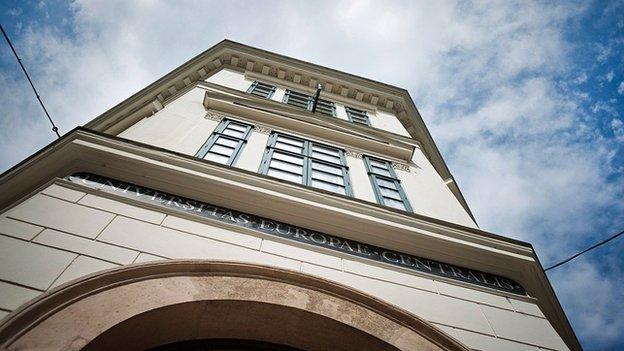Hungary CEU: Protesters rally to save university
- Published

The outpouring of support for the university appears to have surprised the government of Viktor Orban
Ten thousand students, staff and their supporters marched through Budapest on Sunday evening in solidarity with the Central European University (CEU).
New legislation on foreign universities, due for debate in parliament on 5 April, would cripple CEU and could force it to move abroad.
Rector Michael Ignatieff says it will stay open, and stay in Budapest.
"We just want to be left alone," Mr Ignatieff, a former Canadian Liberal Party leader, told the BBC.
"The achievements of the university speak for themselves," he added.
CEU is ranked among the top 200 universities in the world in eight disciplines, and excels in political science and international studies.
The attack on the CEU is the latest battle in a war against liberalism, declared by the increasingly radical right-wing Prime Minister of Hungary, Viktor Orban.
George Soros, the Hungarian-born financier who founded the university in 1991 and still partly funds it, is the main target.
Mr Orban is a critic of liberal NGOs partially funded by Mr Soros. Officials from the governing Fidesz party have repeatedly referred to CEU as "the Soros university".
University officials reply that Mr Soros is part of a 21-member board of trustees, and has no role in the day-to-day running of the university.

George Soros (left) has a strained relationship with Viktor Orban (right)
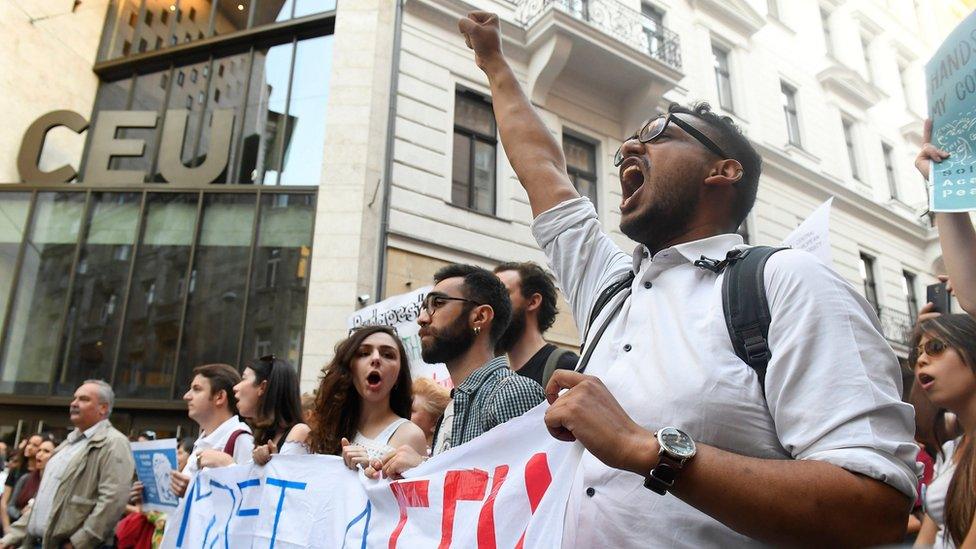
CEU has 1,440 students - 335 from Hungary and the rest from 107 other countries
Behind the scenes, pro-Fidesz academics also covet the CEU buildings, which occupy prime real-estate in the centre of Budapest, next to the pedestrian zone around St Stephen's basilica.
Students and professors from several other Budapest universities also took part in Sunday's march, defying government claims that the CEU has unfair advantages over them.
Protesters drew parallels with the closure by Russian President Vladimir Putin of the European University in St Petersburg in December 2016, and the closure by Turkish President Erdogan of 15 universities since a failed coup attempt last July.
The strength of solidarity with the CEU appears to have surprised the government. The Hungarian Academy of Sciences, 15 Nobel Prize winners, the US State Department and universities around the world have expressed their support for the university.
Most damaging for the government case was a statement from the Hungarian Education Authority saying that the university was functioning completely legally.
Hungary attack on Soros prompts anger
The university built to defend democracy
The proposed legislation would set new requirements for foreign universities, including that they must have a campus in their home country.
The CEU is registered in New York state but does not have a campus in the US.
The government explained the new draft amendments on the grounds that some universities, including CEU, were breaking the law. Viktor Orban has accused CEU of "cheating", in the way it issues degrees.
One senior Fidesz official, EU Commissioner Tibor Navracsics, has also sided with the CEU against his own party.
"Central European University is one of the most important higher education institution not only in Hungary, but also in the European higher education region," he said.
"Therefore, I think it's important that after the correction of possible irregularities, it can continue to operate in Budapest undisturbed."
A compromise solution might be a new international agreement with the university and New York state. If that provides sufficient guarantees that the government will not interfere in its work, the CEU could still be saved.

The Central European University
Founded to "resuscitate and revive intellectual freedom" in parts of Europe that had endured the "horrific ideologies" of communism and fascism
Occupies a building that began as an aristocrat's palace before becoming state-owned offices for a planned socialist economy
Has 1,440 students - 335 from Hungary and the rest from 107 other countries
Presents itself as a champion of free speech, with links to universities in Russia, Kyrgyzstan, Georgia and Kazakhstan

- Published29 March 2017
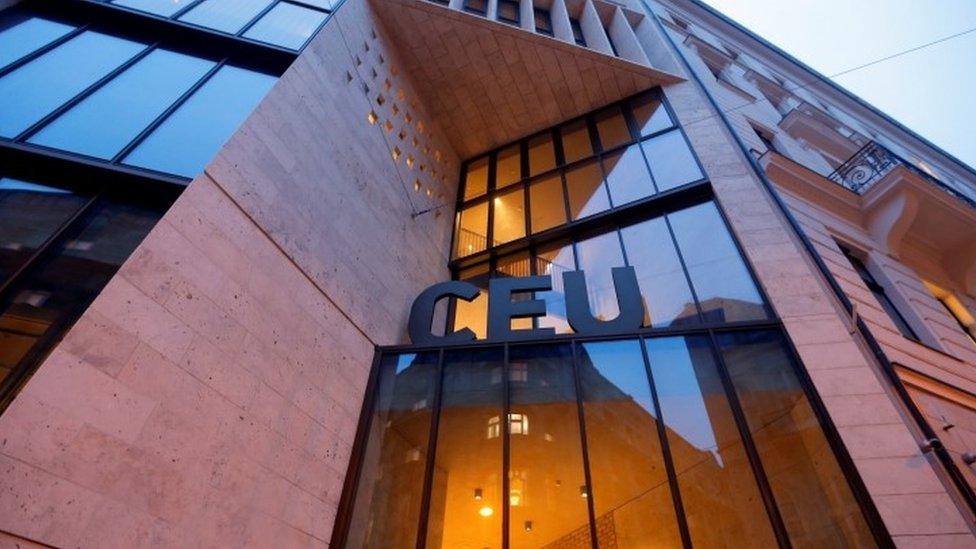
- Published7 March 2017

- Published12 January 2017
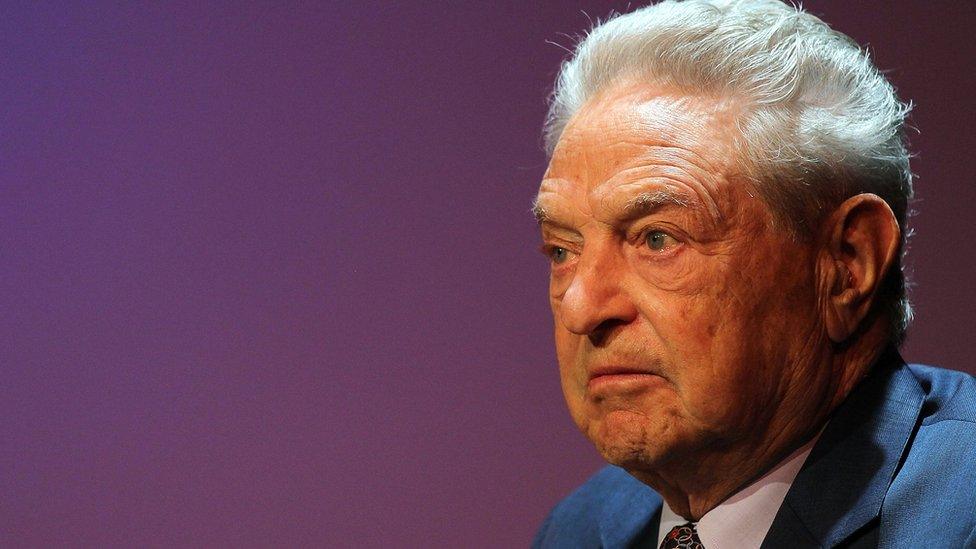
- Published4 September 2015
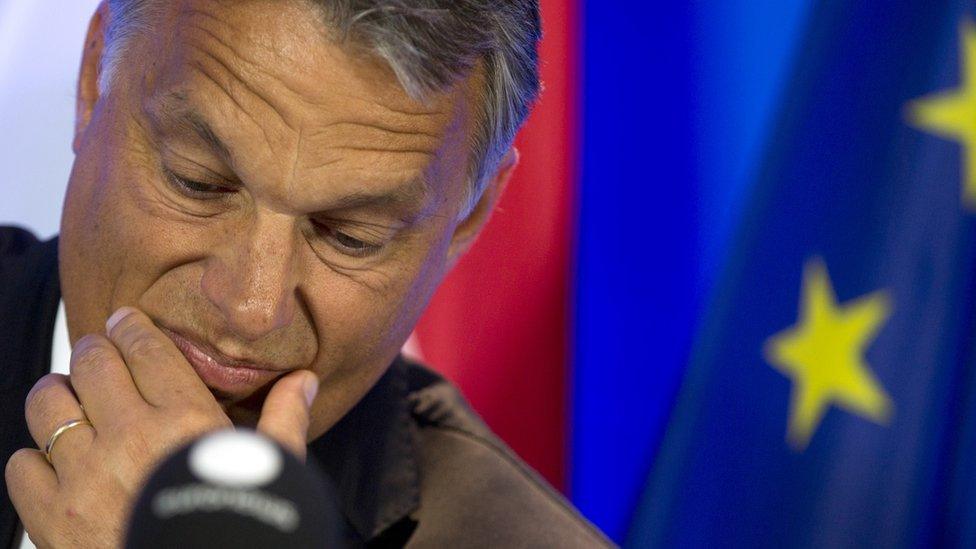
- Published25 June 2016

- Published3 December 2014
